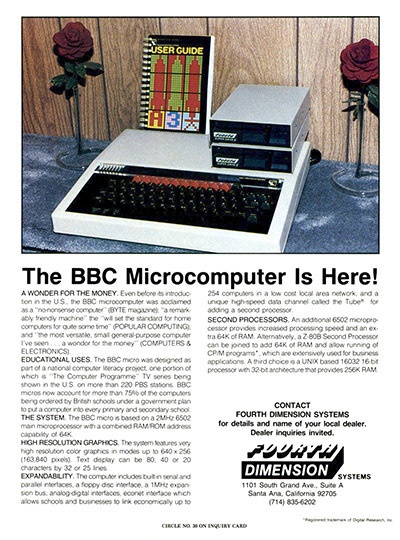Digital Pedagogy
I’ll See You Online: Teaching Assistants, Google Hangouts, and the Online Classroom
This paper was presented at the Cultural Studies Association annual conference in Riverside, CA in May of 2015.
When asked to be a teaching assistant for a fully online class at UC Riverside, my initial response was “of course…but what do I do?” The transition for teaching assistants into the digital world is an often overlooked aspect of online education, with little attention paid to issues of digital preparation, social media training, shifting labor demands, and digital pedagogy. In the physical classroom, teaching assistants play a vital role by grading papers, leading discussion sections, and most importantly, interacting with students. In the virtual classroom, however, TAs can easily become readers or aides that only grade papers and have little connection with students, or even the professor. In order to remedy this situation, in three online courses over the last two years in which I was a TA, the video conferencing service Google Hangouts was used for synchronous class discussions.
Teacher-Facilitators
The Deconstruction of the K-12 Teacher, by Michael Godsy at The Atlantic (2015):
There is a profound difference between a local expert teacher using the Internet and all its resources to supplement and improve his or her lessons, and a teacher facilitating the educational plans of massive organizations.
The article makes some interesting points, and it applies beyond K-12 also. The name of the article in the title bar is "When the Computer Takes Over for the Teacher," which seems a better fit for the story. It's also not just about computers, but a fundamental shift in the way information is created and shared.
(Revised and republished April 12th, 2025)
Creating Digital Professionals
BBC gives children mini-computers in Make it Digital scheme, by Jane Wakefield at BBC News, 2015:
The initiative is part of a wider push to increase digital skills among young people and help to fill the digital skills gap. The UK is facing a significant skills shortage, with 1.4 million "digital professionals" estimated to be needed over the next five years.
Interesting controversy too:
The BBC Micro, launched in the 1980s, played a big role in making computing mainstream but it was not without controversy. The broadcaster's decision to link up with Acorn Computers angered Sir Clive Sinclair as he prepared to launch a rival machine, the ZX Spectrum.
Below, a 1983 advertisement in Interface Age magazine, "The BBC Microcomputer is here!" (via Wikipedia)

(Revised and republished April 23rd, 2025)
Cultural Studies Association - Critical DH Roundtable call for participants
Critical Digital Humanities is putting together a roundtable for this year’s Cultural Studies Association. The conference will be held from May 21-24, 2015 in Riverside, California at the Riverside Convention Center. This year’s theme is Another University Is Possible: Praxis, Activism, and the Promise of Critical Pedagogy. In keeping with this year’s theme, we would like to explore the question “What does critical digital humanities look like?” The goal of this roundtable is to open a dialogue about critical approaches to digital humanities. Each participant will give a brief 5-7 minute provocation followed by a discussion.
Some topics for consideration, but not limitation:
- critical approaches to digital pedagogy, big data projects, data visualization, and digital scholarship
- specific campus initiatives, classes or programs that fall under the category of “critical digital humanities”
- limitations of critical digital humanities
- theory vs. practice in DH
- cultural studies and DH
- public scholarship, public humanities, and public history
Building off of the terrific energy from THATCamp, we would like to invite the DHSoCal community to consider having a role in this conversation! If you are interested, please contact http://cdh.ucr.edu/ and let us know what you are interested in discussing by Dec 1, 2014.
(Revised and republished April 23rd, 2025)
Digital Pedagogy workshop for TAs
Ever wondered what digital pedagogy is? Want to know what it’s like to teach online?
Wonder no more.
On February 19th, 2014, join us for an introductory session on digital pedagogy.
We will introduce you to the LMS (Learning Management System) Canvas, and we'll show you some of the applications that make online teaching as good (and sometimes better) than face–2-face teaching. We’ll also discuss some of the best practices for online education in the physical classroom and in the virtual one.
Location: UC Riverside, Surge 170
Date and time: Wednesday February 19th, 2014. 4–6PM
This is the first of hopefully many sessions aimed at training graduate students (and anyone else) in digital pedagogies.
(Revised and republished April 19th, 2025)
Event Archive: Rethinking Debates on Digital Learning . 12 Feb 2014
My post at Critical Digital Humanities on a recent talk:
CDH Event Archive: Rethinking Debates on Digital Learning
Yesterday CDH sponsored a talk by Professor Juliette Levy of the Department of History at UC Riverside. In her discussion, Professor Levy described her own evolution toward using digital technology in order to broaden the learning experience for her students.
Professor Levy’s talk began with a common experience many in academia have shared — traditional methods of teaching are not being adapted to the changing needs of students in our modern world.
The RSA talk by Sir Ken Robinson, which was turned into an animated video, was central to describing this need for change. There is a great chasm between the needs of students and the pace of innovation within the classroom.
→ read more at the original post
(Revised and republished April 19th, 2025)
Notes on Virtual Lectures
The virtual lecture that Professor Levy gave to her CHASS F1RST class on Monday went very well. This was the first time we attempted to produce a virtual lecture, and I’ve compiled some notes on the process and our experience.
1. The setup will take 5–10 minutes.
Professor Levy and I had both done Google Hangouts before, but never for such a large audience. Just connecting the laptop to the projector can take a minute or two, and then there’s the webcam, and the initiation of the Google Hangout. In order to keep students engaged during all this, I played the “#Hashtag” video with Jimmy Fallon and Justin Timberlake. The idea here was to inject a little humor, and also consider digital technology as a theme for the lecture. After the video, Judy (the TA), addressed the class and let them know about the video conferencing aspect via Google Hangouts.
Virtual Lectures and the Digital Classroom
This winter quarter I am a research assistant working on digital pedagogy and instruction at UC Riverside for Professor Juliette Levy. The class consists of about 60 students, and it’s a CHASS F1RST Humanities Course (Wayback Machine link) covering the history of Latin America. Even though this is a regular in-class course, we’re using a variety of digital tools to help broaden the learning experience. These tools, which are helpful for managing the class itself and also creating real interaction between students, include:
Rewiring Class Emails and Student Interaction with Piazza
In a previous post I wrote about the experience of teaching an online class as a TA. One of the primary tools we used for the course was Piazza, and it was instrumental in shifting the burden of email to a more open and constructive arena.
Digital pedagogy and the online classroom
A few days ago I finished grading for an online summer class, The History of Latin America (HIST75V). I was the TA (teaching assistant) for Professor Juliette Levy, and this was the first time that either of us had conducted an online course. We’ve both taught the traditional in-class version of this course many times, and the opportunity to transform our in-class materials and teaching styles into an online presence was quite exciting. Professor Levy and I are both from the University of California, Riverside, and the course itself was hosted through UC Online. This class was an accelerated summer course, only 3 weeks long, and the LMS (Learning Management System) was Canvas. We also used Piazza for a student question & answer forum (I’ll write more about Piazza in another post).
